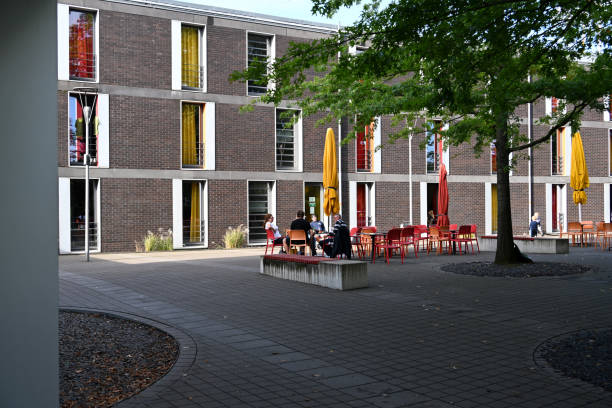When it comes to where you reside during your time in college, you have a few alternatives. You have three options: live on campus, rent an apartment nearby, or stay with your parents or other family members.
The advantages of living on campus for students are numerous. These advantages can be linked to the residence halls’ ability to provide ties to the campus community and to the programmes they offer. Research indicates that students living on-campus student accommodation have a direct boost in their personal academic performance as compared to their off-campus peers. From a wider angle, instructors and staff as well as all students—residents and non-residents—benefit from campus housing.
What makes living on campus desirable?
Make friends
You’ll meet new people and become a part of the campus community. Although you might not know anyone when you get there, having a flatmate is one perk of living in a dorm. Everyone in your on-campus student apartments, including your roommate, will be acclimating to living away from home for the first time. Having someone to share that experience with is a benefit of this. Close friendships are frequently formed by students with their roommates and other residents of their halls.
Make a social life for yourself
Participating in the many student clubs and organisations on campus is another aspect of university life. These groups can be joined for free most of the time. This is the ideal time to explore your interests outside of the classroom and attempt new things. More than 350 groups, encompassing everything from sports and the arts to cultural institutions and outdoor excursions, are part of JMU’s vibrant student life.
All-inclusive meals
What sounds like a delicious dinner? Everything you don’t need to prepare! It may seem insignificant, but cooking for oneself may be a daunting task if you’re not used to doing it or you are away from your home to study abroad for the first time. Weekly meal planning, grocery shopping, and cooking need time (especially if you want to eat more than a diet of two-minute noodles). All college meals are included in the cost of your housing at the university, giving you more time for studying, extracurricular activities, and socialising.
Self-reliance
Living on campus provides a simple route to independence if you’ve been longing for the freedom that comes with being independent. University housing is the perfect mix between living with family and having your own place because moving from home can be intimidating. You won’t have to deal with the restrictions of living in your family’s house or the difficulties of travelling alone when renting an off campus student accommodation—you’ll still have housemates. Accept the independence of following your own schedule and creating your own plans, with the added safety net of college support personnel who are always available to assist or aid with any obstacles in life.
You’ll experience less stress from travelling
It can be difficult to juggle academic responsibilities with transportation. However, residing close to academic buildings and other campus amenities might relieve the burden of commuting.
Not all of the accommodation on campus, meanwhile, is close to the academic buildings by foot. Some colleges provide a free transportation system or shuttle to address this problem.
There can be problems for commuters even getting to campus. For instance, a lot of people who live in off campus student rooms have to figure out the schedule and dependability of public transit. Students who drive must also abide by the rules at their school. While some universities charge for parking, others might not even permit students to bring cars on campus.
Remain vigilant
While university towns are generally safe, it’s nice to know that most campuses have security and surveillance in place around-the-clock.

